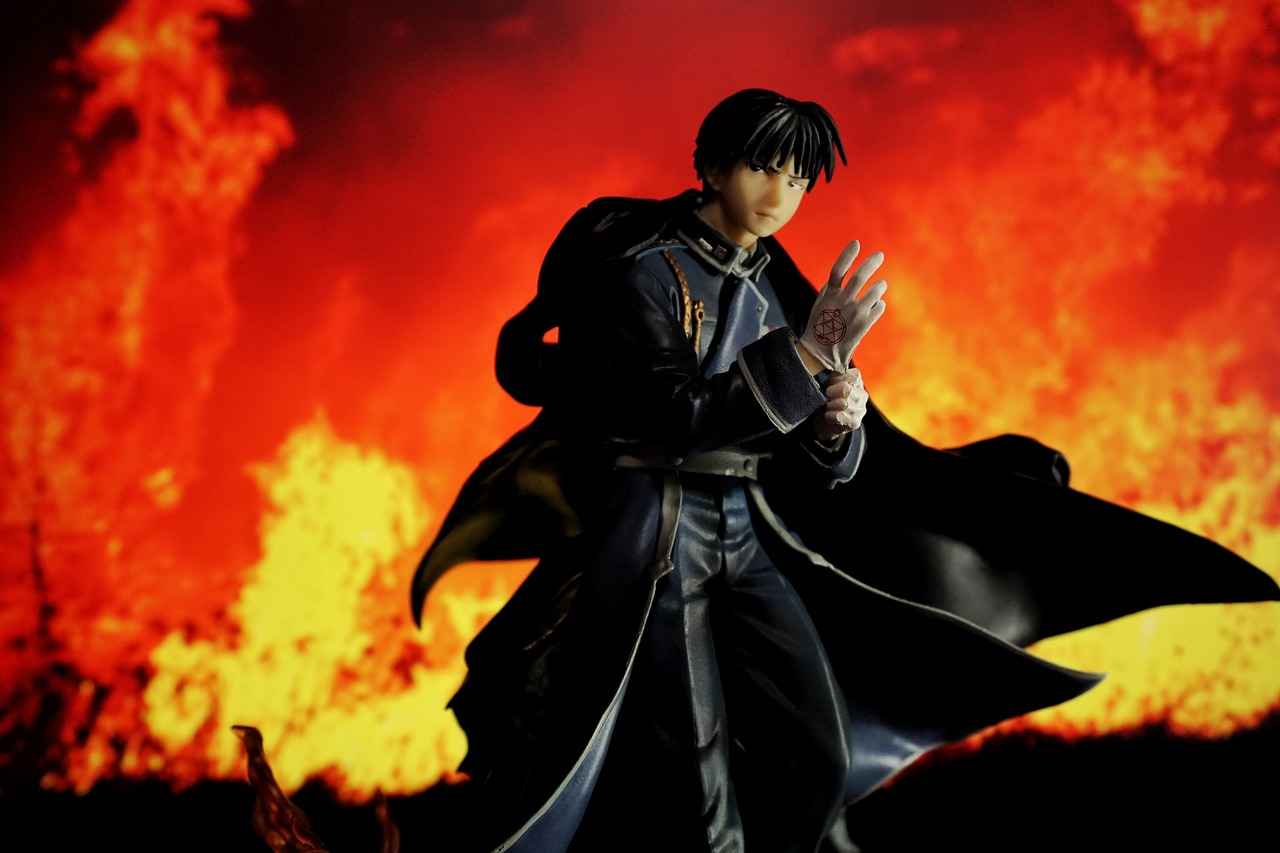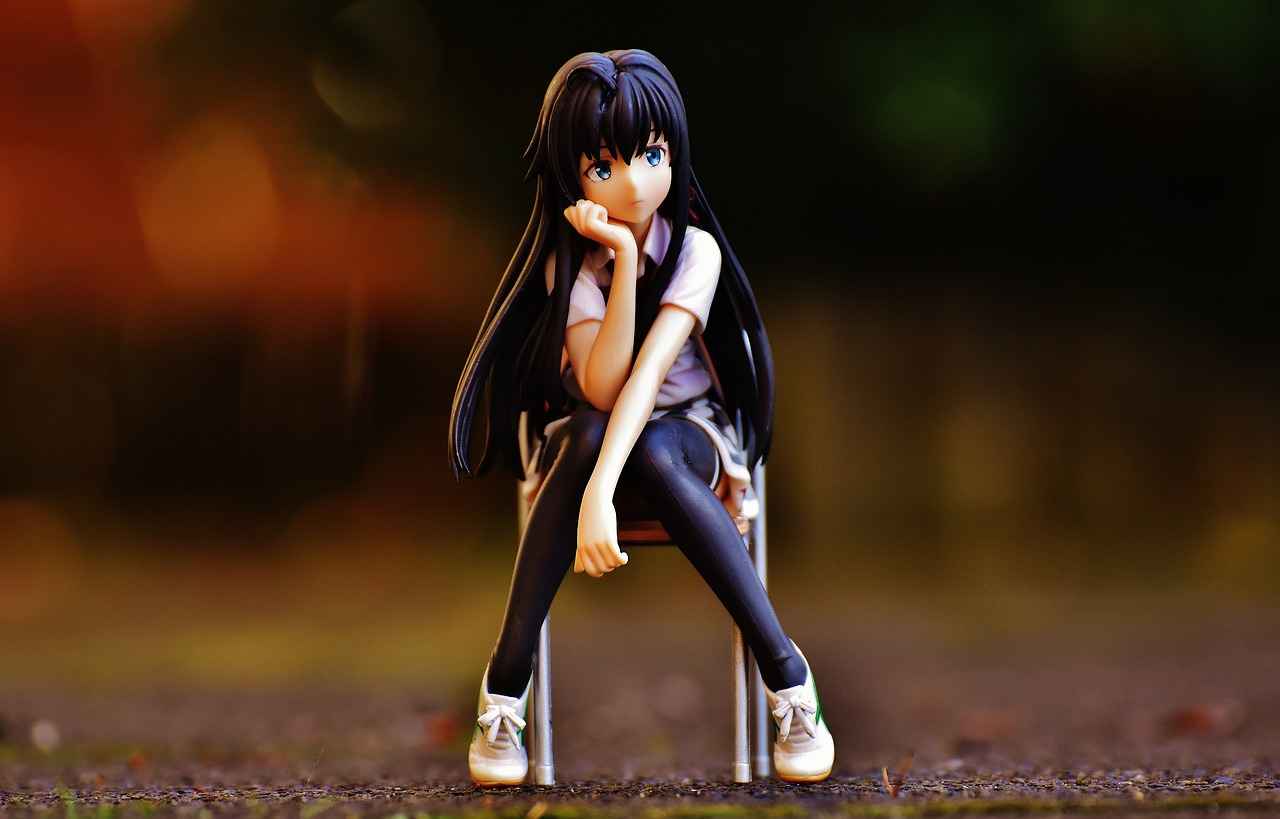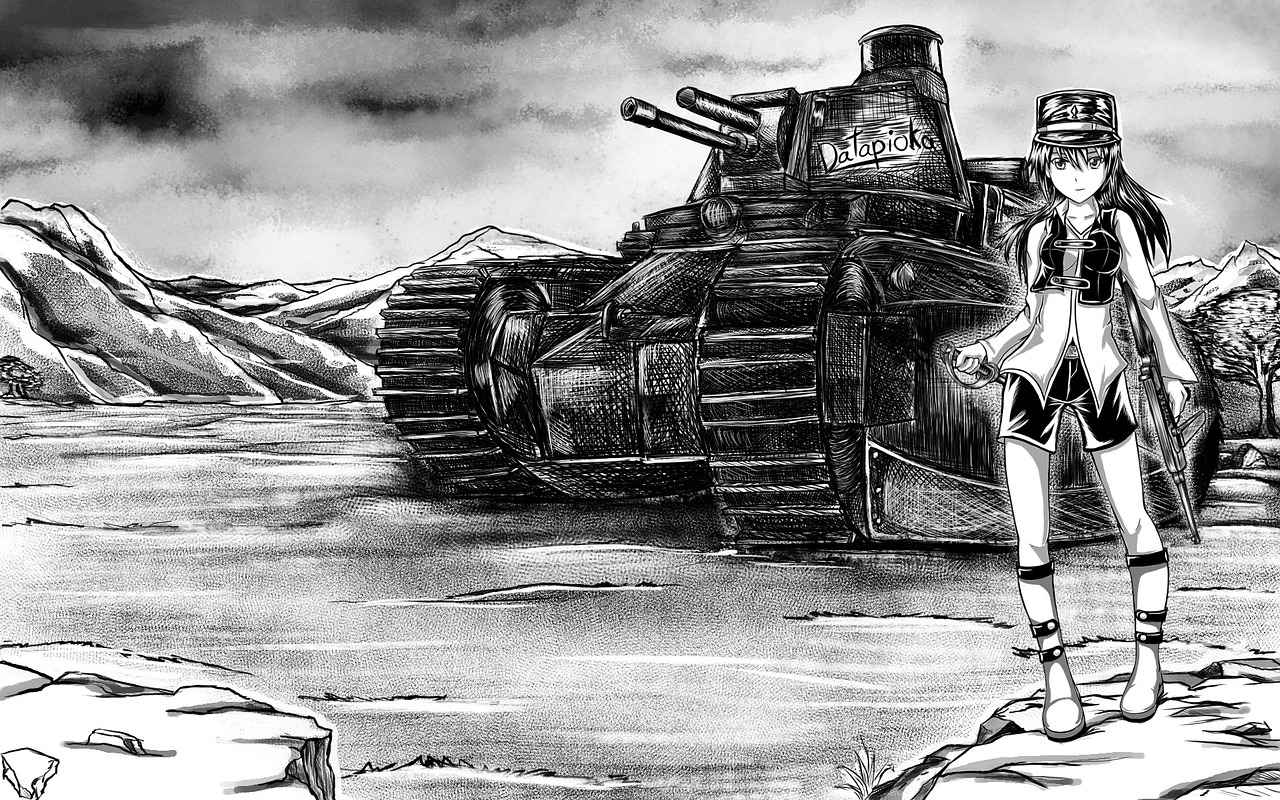This article explores some of the most thought-provoking anime series that push the boundaries of reality, offering unique narratives and complex themes that captivate audiences and challenge their perceptions. Mind-bending anime often leaves viewers questioning their own understanding of reality, identity, and existence.
What Makes an Anime Mind-Bending?
Understanding the characteristics that define mind-bending anime is crucial. These series often feature:
- Narrative Complexity: Intricate plots that intertwine multiple timelines or perspectives.
- Philosophical Themes: Exploration of deep questions related to existence, consciousness, and morality.
- Visual Storytelling: Artistic choices that distort reality, enhancing the viewer’s experience.
Top Mind-Bending Anime Series
Here are some of the most acclaimed mind-bending anime series:
- Steins;Gate: A gripping tale of time travel that examines the consequences of altering timelines.
- Neon Genesis Evangelion: A blend of mecha action and psychological depth that challenges existential beliefs.
Philosophical Themes in Mind-Bending Anime
Many mind-bending anime incorporate philosophical themes that provoke thought:
- Existentialism in Serial Experiments Lain: A profound look at identity and technology.
- Reality vs. Perception in Paprika: A film that blurs the lines between dreams and reality.
The Impact of Visual Storytelling
Visual storytelling is essential in creating mind-bending experiences. Key elements include:
- Animation Techniques: Surreal visuals and unconventional framing enhance narrative depth.
- Symbolism and Imagery: Rich visual metaphors create a deeper understanding of themes.
Why Mind-Bending Anime Resonates with Audiences
The appeal of mind-bending anime lies in their ability to engage viewers intellectually and emotionally:
- Engagement Through Complexity: Intricate plots stimulate discussion and analysis.
- Cultural Influence and Legacy: These series often influence other media and evolve storytelling in animation.
In conclusion, mind-bending anime not only entertain but also challenge viewers to reflect on their perceptions of reality. Their unique narratives and complex themes ensure they remain a significant part of the anime landscape.

What Makes an Anime Mind-Bending?
To truly appreciate the allure of mind-bending anime, one must delve into the distinctive characteristics that set these series apart from traditional storytelling. At the heart of mind-bending anime lies narrative complexity, where plots twist and turn, often challenging the viewer’s understanding of time, space, and reality itself. These intricate narratives not only captivate audiences but also demand active engagement, encouraging viewers to piece together the puzzle as they navigate through layers of meaning.
Another critical element is the exploration of philosophical themes. Many mind-bending anime tackle profound questions about existence, identity, and consciousness. For instance, series like Neon Genesis Evangelion delve into the psyche of their characters, prompting viewers to reflect on their own beliefs and perceptions. This philosophical underpinning invites a deeper connection, as audiences find themselves pondering the implications of the story long after the credits roll.
The visual storytelling in mind-bending anime also plays a pivotal role in shaping the viewer’s experience. Unconventional animation styles, surreal imagery, and innovative techniques create a visual landscape that distorts reality. This artistic approach not only enhances the narrative but also immerses viewers in a world where the boundaries between dream and reality blur. For example, the film Paprika masterfully intertwines dreams with waking life, challenging the viewer to discern what is real.
In summary, mind-bending anime captivates through its complex narratives, philosophical exploration, and striking visual storytelling. By engaging audiences on multiple levels, these series not only entertain but also provoke thought, making them a unique and enriching experience for viewers.

Top Mind-Bending Anime Series
This section highlights some of the most acclaimed mind-bending anime series. Each series is analyzed for its narrative structure, themes, and the innovative techniques that set it apart from traditional storytelling. These anime not only entertain but also challenge the viewers’ understanding of reality, making them think deeply about the narratives presented.
- Steins;Gate: A masterclass in time travel storytelling, this series intricately weaves together multiple timelines and the consequences of altering them. It invites viewers to ponder the concepts of fate and free will, leaving them questioning their own choices.
- Neon Genesis Evangelion: This iconic series combines mecha battles with profound psychological exploration. It presents complex characters grappling with their identities and existential crises, making it a pivotal work in the genre that pushes viewers to confront their own beliefs.
- Serial Experiments Lain: This anime delves into the intersection of technology and identity. It raises questions about the nature of reality in a digital age, challenging viewers to reflect on their connections with both the real world and the virtual one.
- Paprika: A visually stunning film that blurs the lines between dreams and reality, Paprika explores the subconscious mind. Its narrative structure enhances its mind-bending qualities, prompting viewers to question the nature of perception itself.
These series exemplify the essence of mind-bending anime, each offering a unique perspective on complex themes. By employing innovative narrative techniques, they engage audiences in a way that is both intellectually stimulating and emotionally resonant.
In conclusion, the mind-bending anime genre is rich with series that challenge perceptions and evoke deep thought. As viewers immerse themselves in these intricate narratives, they not only enjoy compelling stories but also embark on a journey of self-reflection and philosophical inquiry.
Steins;Gate: Time Travel and Consequences
Steins;Gate is a critically acclaimed anime series that intricately weaves a narrative centered around the concept of time travel. The plot follows a group of friends who inadvertently discover a method to send messages to the past, triggering a cascade of events that drastically alters their present. This exploration of time manipulation raises profound questions about the consequences of one’s actions and the delicate fabric of reality.
As the story unfolds, viewers are taken on a thrilling journey filled with suspense, humor, and emotional depth. The protagonist, Okabe Rintarou, also known as “Okarin,” embodies the struggles of a young scientist grappling with the moral implications of his discoveries. Each decision he makes leads to various timelines, showcasing the butterfly effect of time travel. This intricate plotting not only captivates but also challenges the audience’s understanding of fate and free will.
The anime doesn’t shy away from the darker aspects of time travel, presenting the heavy toll it takes on its characters. The emotional weight of their choices becomes increasingly evident, forcing viewers to ponder: Are we truly masters of our destiny, or are we merely pawns in a predetermined game? This philosophical inquiry is what sets Steins;Gate apart from other series in the genre.
In addition to its compelling narrative, the anime is praised for its character development. Each character is meticulously crafted, contributing to the overall theme of interconnectedness. The relationships formed and the sacrifices made resonate deeply with the audience, making the stakes feel profoundly personal.
In conclusion, Steins;Gate is not just an anime about time travel; it is a profound exploration of the human condition. It invites viewers to reflect on their own lives and the impact of their choices, making it a timeless classic in the realm of mind-bending anime.
Neon Genesis Evangelion: Psychological Depth
Neon Genesis Evangelion is not just another mecha anime; it is a profound exploration of the human psyche interwoven with thrilling action sequences. This series stands out in the anime landscape for its ability to blend high-octane battles with intricate psychological narratives. It invites viewers to delve into the depths of their own consciousness, challenging them to confront existential dilemmas that resonate deeply with the human experience.
At its core, Neon Genesis Evangelion grapples with themes of identity, trauma, and the quest for meaning in a seemingly chaotic world. The protagonist, Shinji Ikari, embodies the struggles of adolescence and the pressures of expectation. His journey is not merely about piloting giant robots to save humanity; it is a metaphorical battle against his own fears, insecurities, and the overwhelming weight of responsibility.
The series also employs a rich tapestry of symbolism and visual storytelling that enhances its psychological depth. Elements such as the enigmatic Angels, the intricate designs of the Evangelions, and the surreal dream sequences serve to distort reality and provoke thought. This visual complexity invites viewers to interpret the narrative on multiple levels, making each viewing a unique experience.
Moreover, Neon Genesis Evangelion poses significant philosophical questions about the nature of existence and the human condition. It compels audiences to reflect on their own lives, prompting inquiries into what it means to be human in a world filled with uncertainty. The series’ ability to intertwine personal struggles with broader existential themes solidifies its status as a cornerstone of mind-bending anime.
In conclusion, Neon Genesis Evangelion is an essential watch for anyone interested in anime that challenges both the mind and the heart. Its unique blend of mecha action and psychological exploration makes it a timeless classic that continues to inspire discussions about identity, existence, and the complexities of the human experience.

Philosophical Themes in Mind-Bending Anime
delve into the intricate layers of human thought and existence, often leading viewers to question their own perceptions of reality. These anime series not only entertain but also serve as profound explorations of concepts like identity, reality, and consciousness. By weaving complex narratives that challenge conventional understanding, they encourage audiences to engage in deep reflection about their own beliefs and experiences.
One of the most compelling aspects of mind-bending anime is their ability to present existential dilemmas. For instance, in Serial Experiments Lain, the protagonist navigates a digital landscape that blurs the lines between self and technology. This series poses critical questions about the essence of identity in a world dominated by the internet, urging viewers to consider how much of their existence is shaped by digital interactions.
Another striking example is Paprika, a film that masterfully intertwines dreams and reality. It challenges the audience to contemplate the nature of perception and the subconscious mind. The narrative structure, which shifts between dream sequences and waking life, enhances its mind-bending qualities, prompting discussions about what constitutes true reality.
Furthermore, Neon Genesis Evangelion explores psychological depth through its characters’ struggles with existential crises and their place in the universe. The series confronts viewers with questions about free will and the search for meaning in a chaotic world, making it a cornerstone of philosophical discourse in anime.
In conclusion, mind-bending anime serves as a rich tapestry of philosophical inquiry, inviting audiences to reflect on their own lives and beliefs. By engaging with themes of identity, reality, and consciousness, these series not only entertain but also provoke thought, leaving a lasting impact on viewers.
Existentialism in Serial Experiments Lain
delves into the intricate relationship between technology and self-identity, presenting a narrative that is as thought-provoking as it is visually compelling. This anime series, which emerged in the late 1990s, has garnered a cult following due to its unique exploration of the digital landscape and its implications on human existence.
At its core, Serial Experiments Lain challenges viewers to confront the concept of identity in an increasingly digital world. The protagonist, Lain Iwakura, transitions from a shy, introverted girl into a complex entity navigating the boundaries of reality and cyberspace. This transformation raises profound questions about the essence of selfhood: What does it mean to be ‘real’ in a world where digital personas can be crafted and manipulated?
The series employs a non-linear narrative and surreal imagery, which serves to immerse the audience in Lain’s psychological journey. Through her interactions in the virtual realm known as the Wired, Lain encounters various representations of self, ultimately leading to an existential crisis that echoes themes from philosophical discourse. This prompts viewers to reflect on their own digital identities and the authenticity of their connections in an online environment.
Moreover, Lain’s exploration of consciousness raises essential questions about free will and determinism. As she becomes more entwined with the Wired, the lines between her physical existence and digital presence blur, inviting audiences to ponder whether technology enhances or diminishes our humanity. The anime’s narrative complexity encourages viewers to engage with these philosophical themes actively, fostering discussions that extend beyond the screen.
In conclusion, Serial Experiments Lain serves as a powerful commentary on existentialism in the age of technology. Its innovative storytelling and rich thematic depth not only challenge conventional narratives but also resonate with contemporary audiences navigating their own digital lives. As we continue to integrate technology into our daily existence, the questions raised by Lain’s journey remain profoundly relevant, making this anime a timeless exploration of identity and reality.
Reality vs. Perception in Paprika
Paprika, directed by Satoshi Kon, is a groundbreaking film that intricately weaves together the realms of dreams and reality, challenging viewers to question their perceptions. The narrative structure of the film is not merely a storytelling device; it serves as a crucial element that enhances its mind-bending qualities. Through its unique approach, Paprika invites audiences to explore the fluid boundaries of consciousness.
The film follows Dr. Atsuko Chiba, a psychologist who uses a device that allows her to enter the dreams of her patients. As she transforms into her dream alter ego, Paprika, the film blurs the lines between the waking world and the dreamscape. This duality is pivotal, as it compels viewers to reflect on their own perceptions of reality. The narrative’s non-linear progression, combined with vivid dream sequences, creates a disorienting experience that mirrors the complexities of the human mind.
One of the most striking aspects of Paprika is its use of visual storytelling. The film employs vibrant colors, surreal imagery, and imaginative landscapes that captivate the viewer’s attention. This artistic choice not only enhances the dreamlike quality but also serves to illustrate the chaotic nature of dreams. As viewers navigate through these fantastical visuals, they are encouraged to question what is real and what is a mere figment of imagination.
Furthermore, the film’s thematic exploration of technology and its impact on human consciousness adds another layer to its narrative. Paprika raises profound questions about the implications of manipulating dreams and the ethical boundaries of technology. As the characters grapple with their own identities within the dream world, the audience is left to ponder the nature of self and reality.
In conclusion, Paprika stands as a remarkable exploration of reality versus perception. Its innovative narrative structure and stunning visual storytelling work in tandem to create a thought-provoking experience that lingers long after the credits roll. By challenging viewers to confront their understanding of reality, the film not only entertains but also invites deep reflection on the nature of existence itself.

The Impact of Visual Storytelling
Visual storytelling is a powerful element in the realm of anime, especially in creating experiences that are both engaging and thought-provoking. It transcends mere illustration, allowing viewers to delve into the emotional and psychological layers of the narrative. In this section, we will explore how animation techniques and artistic choices contribute significantly to the overall impact of mind-bending anime on audiences.
One of the most striking aspects of visual storytelling in anime is its ability to distort reality. Through the use of surreal visuals and unexpected framing, creators can manipulate the viewer’s perception, making them question what is real. For instance, in series like Paprika, the animation style blurs the lines between dreams and reality, immersing the audience in a world where the impossible becomes possible.
Moreover, the use of color palettes and symbolism plays a vital role in conveying complex themes. In Neon Genesis Evangelion, the contrasting colors and abstract imagery reflect the characters’ internal struggles, enhancing the psychological depth of the narrative. This artistic choice not only captivates viewers but also invites them to engage with the story on a deeper level.
Additionally, dynamic camera angles and movement can evoke emotions and heighten tension. The use of unconventional perspectives can create a sense of unease or disorientation, aligning perfectly with the themes of existentialism found in series like Serial Experiments Lain. By challenging traditional storytelling methods, these techniques encourage viewers to actively participate in the narrative, enhancing their overall experience.
In conclusion, the impact of visual storytelling in anime is profound. Through innovative animation techniques and thoughtful artistic choices, creators can craft mind-bending experiences that resonate with viewers. As audiences engage with these narratives, they are not only entertained but also invited to reflect on their own perceptions of reality.
Animation Techniques That Enhance Reality Distortion
In the realm of mind-bending anime, innovative animation techniques play a crucial role in shaping the viewer’s experience. These techniques not only serve to engage audiences but also amplify the narrative in profound ways. By employing surreal visuals and unconventional framing, creators are able to challenge the perception of reality, immersing viewers in a world where the ordinary becomes extraordinary.
One of the most striking features of mind-bending anime is the use of surreal visuals. This technique often involves the manipulation of colors, shapes, and perspectives to create a dreamlike atmosphere. For instance, in series like Paprika, the boundaries between dreams and reality blur, allowing viewers to explore the subconscious in a visually stunning manner. The vibrant colors and fluid animation styles contribute to a sense of disorientation, making the viewer question what is real.
Another essential technique is the use of unconventional framing. By altering the camera angles and perspectives, anime creators can present scenes that evoke feelings of unease or wonder. For example, in Neon Genesis Evangelion, the use of extreme close-ups and wide shots creates a jarring contrast that reflects the characters’ inner turmoil. This technique not only enhances the emotional depth of the narrative but also invites viewers to engage with the story on a more intimate level.
Furthermore, symbolism plays a pivotal role in mind-bending anime. Visual metaphors embedded within the animation can convey complex themes and ideas, enriching the narrative. For instance, the recurring imagery of labyrinths in Serial Experiments Lain serves as a metaphor for the intricate layers of identity and reality, prompting viewers to reflect on their own existence.
In conclusion, the innovative animation techniques employed in mind-bending anime are vital for creating an immersive experience that challenges perceptions of reality. By utilizing surreal visuals, unconventional framing, and rich symbolism, these series engage viewers and amplify the narrative, leaving a lasting impact on their understanding of the world.
Symbolism and Imagery in Mind-Bending Anime
Symbolism and rich imagery are integral components of mind-bending anime, serving as powerful tools to communicate complex themes and emotions. These visual metaphors not only enhance the storytelling but also provide viewers with a deeper understanding of the narrative’s underlying messages. Through the use of symbolism, creators can convey intricate ideas that may be difficult to articulate through dialogue alone.
In many mind-bending anime, imagery plays a crucial role in reflecting characters’ inner struggles and the surreal nature of their realities. For instance, in Neon Genesis Evangelion, the recurring motifs of angels and the human psyche illustrate the battle between external threats and internal conflicts. Each visual element is meticulously crafted to evoke a specific emotional response, allowing viewers to engage with the narrative on a personal level.
Moreover, the use of color symbolism is prevalent in these series. Different colors can represent various emotions or themes, guiding the audience’s interpretation of scenes. For example, the color red often signifies danger or passion, while blue may evoke feelings of calmness or sadness. By employing such visual cues, anime creators can manipulate the viewer’s perception, leading to a more immersive experience.
Additionally, the interplay between light and shadow in animation further enhances the atmosphere of mind-bending narratives. Shadows can create a sense of mystery or foreboding, while light can symbolize hope or clarity. This dynamic use of visual elements encourages viewers to explore the deeper meanings behind the story, prompting them to question their interpretations.
In conclusion, the rich symbolism and imagery found in mind-bending anime are not merely decorative; they are essential to the storytelling process. By utilizing visual metaphors, creators can convey complex themes and emotions that resonate with audiences, ultimately enriching the viewing experience. As viewers engage with these narratives, they are invited to reflect on their own perceptions of reality, making the journey through mind-bending anime both thought-provoking and transformative.

Why Mind-Bending Anime Resonates with Audiences
The appeal of mind-bending anime lies in their remarkable ability to engage viewers on both intellectual and emotional levels. These series often present intricate narratives that challenge conventional storytelling, forcing audiences to question their understanding of reality. The complexity of the plots, combined with profound themes, creates a unique viewing experience that resonates deeply with fans.
One of the primary reasons these anime are so captivating is their narrative complexity. Unlike traditional shows, mind-bending anime often weave together multiple timelines, perspectives, and layers of meaning. This complexity invites viewers to actively participate in unraveling the story, fostering a sense of engagement that goes beyond passive consumption. As audiences piece together the narrative puzzle, they find themselves drawn into a world where nothing is as it seems.
Additionally, many of these series explore philosophical themes that provoke critical thinking. Concepts such as identity, consciousness, and the nature of reality are frequently examined, prompting viewers to reflect on their beliefs and experiences. For example, shows like Neon Genesis Evangelion and Serial Experiments Lain challenge characters and viewers alike to confront existential dilemmas, making the viewing experience both thought-provoking and emotionally resonant.
Moreover, the lasting impact of mind-bending anime on popular culture cannot be overstated. These series often inspire discussions, fan theories, and even academic analyses, contributing to their enduring legacy. They influence other forms of media, encouraging creators to experiment with narrative structures and themes, thus evolving the landscape of storytelling in animation.
In conclusion, the resonance of mind-bending anime stems from their ability to engage audiences intellectually and emotionally. By challenging perceptions and exploring complex themes, these series leave a profound mark on viewers, ensuring their place in the annals of popular culture.
Engagement Through Complexity
The world of mind-bending anime is characterized by its intricate narratives that challenge viewers to think critically and engage deeply with the content. These series often weave together multiple storylines, complex characters, and philosophical themes, creating a rich tapestry that invites analysis and discussion. As audiences delve into these multilayered plots, they find themselves not just passive viewers but active participants in a larger conversation about the nature of reality and existence.
One of the most compelling aspects of these narratives is their ability to provoke thought and stimulate debate among fans. For instance, series like Steins;Gate and Neon Genesis Evangelion encourage viewers to explore themes such as time travel, fate, and psychological struggles. This complexity leads to a variety of interpretations, allowing fans to share their insights and theories, which fosters a vibrant community of discussion.
Moreover, the intricate plots often serve as a mirror, reflecting the viewers’ own experiences and beliefs. As they navigate through twists and turns, audiences are prompted to question their own perceptions of reality. This engagement is not limited to mere entertainment; it extends to a deeper understanding of human emotions and societal issues. For example, Serial Experiments Lain challenges viewers to consider the impact of technology on identity, sparking conversations about digital existence and personal connection.
In conclusion, the complexity of mind-bending anime narratives plays a crucial role in engaging viewers on multiple levels. By stimulating discussion and analysis, these series create a unique viewing experience that resonates with audiences long after the credits roll. This engagement not only enhances the enjoyment of the content but also contributes to the ongoing evolution of storytelling in the anime medium.
Cultural Influence and Legacy
Mind-bending anime have not only captivated audiences but have also reshaped cultural narratives across various media. These series often challenge conventional storytelling, pushing the boundaries of animation and influencing everything from films to video games. The impact of these anime is profound, as they introduce complex themes and innovative narratives that resonate with viewers on multiple levels.
One of the most significant aspects of mind-bending anime is their ability to inspire other forms of media. For instance, the intricate plots and philosophical underpinnings of series like Steins;Gate have influenced numerous science fiction films and books, encouraging creators to explore themes of time travel and its ethical implications. Similarly, the psychological depth found in Neon Genesis Evangelion has left an indelible mark on the mecha genre, prompting creators to incorporate more profound emotional and existential themes in their works.
Moreover, the visual storytelling techniques employed in mind-bending anime have set new standards in animation. The use of surreal visuals and symbolism not only enhances the narrative but also inspires artists and animators globally. For example, the dreamlike sequences in Paprika have influenced filmmakers like Christopher Nolan, who have drawn from its visual style to create layered narratives in films like Inception.
Additionally, mind-bending anime have fostered a community of fans who engage in discussions and analyses, further solidifying their cultural legacy. These series often become a topic of conversation in academic circles, with scholars examining their themes and storytelling techniques. This engagement not only enriches the viewing experience but also ensures that the influence of mind-bending anime continues to evolve.
In conclusion, the cultural impact of mind-bending anime is significant and far-reaching. By challenging perceptions and inspiring new forms of storytelling, these series contribute to the ongoing evolution of animation and popular culture. Their legacy is a testament to the power of creativity and the profound effect that innovative narratives can have on society.
